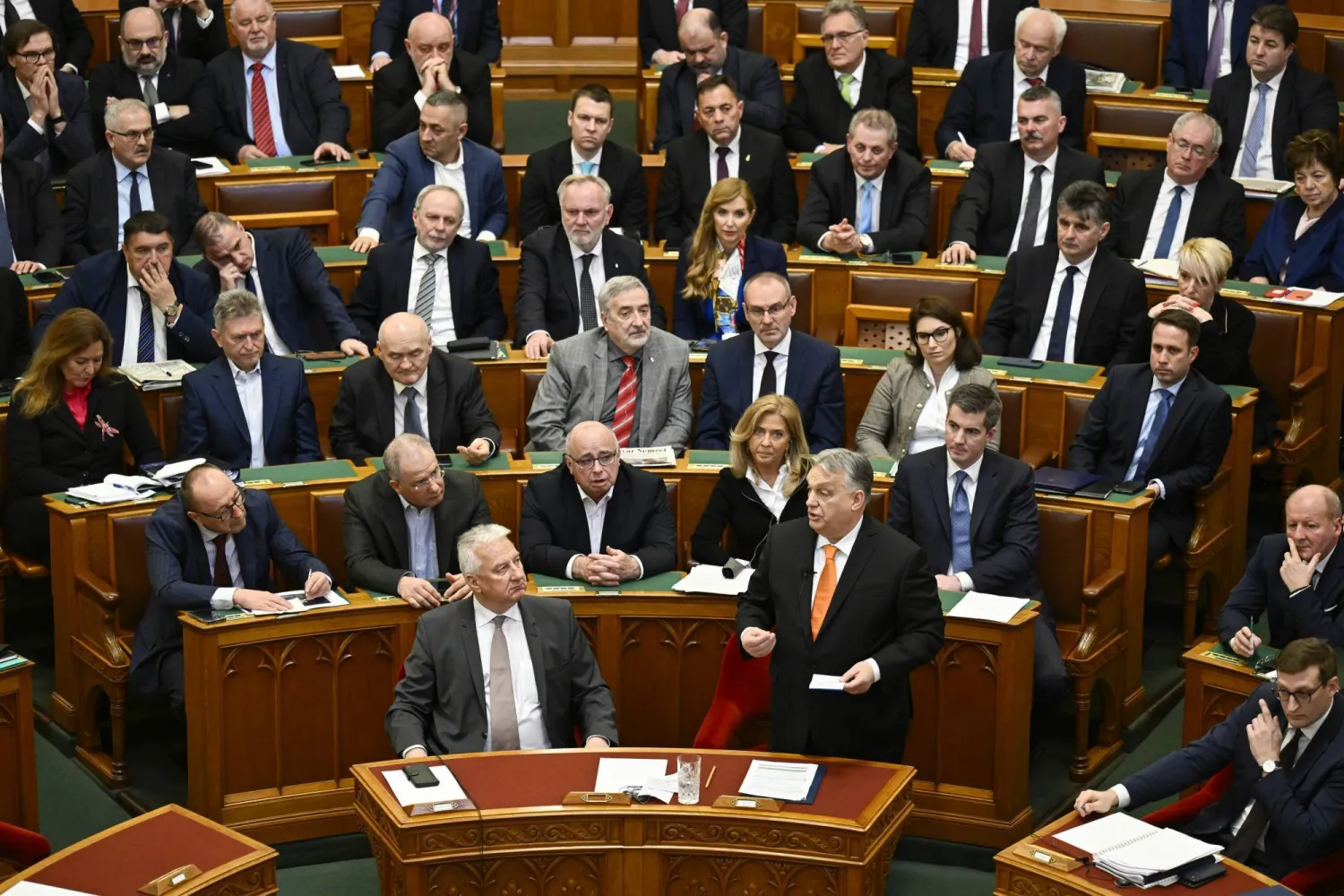Hungary’s parliament approved on Monday Sweden’s NATO membership bid, removing the last hurdle for the military alliance’s expansion driven by Russia’s invasion of Ukraine in February 2022.
In Hungary's parliament on Monday, 188 voted in favor and six against, with five abstaining.
Sweden welcomed the move, saying: “Today is a historic day.”
The vote on Monday removed the final membership hurdle for Sweden’s bid to join the alliance following lengthy delays from rightwing nationalist Hungarian Prime Minister Viktor Orban and negotiations with Türkiye, which had approved the Scandinavian country's integration into NATO last month.
Addressing lawmakers before the vote on Monday, Orban welcomed the recent visit of his Swedish counterpart Ulf Kristersson to Budapest.
“Sweden’s entry into NATO will strengthen Hungary’s security,” he said, calling Kristersson’s visit an essential step toward building “a fair and respectful relationship between the two countries.”
Orban had repeatedly said he supported Swedish membership in principle, however, he kept prolonging the process, asking Stockholm to stop “vilifying” the Hungarian government.
Relations between both countries improved in recent weeks, particularly after Kristersson’s visit on Friday when the Hungarian leader announced that the two officials had clarified their mutual good intentions.
Hungary also signed a deal to acquire four Swedish-made fighter jets, expanding its fleet of 14 Jas-39 Gripen fighters.
32nd member
The protocols for approving Sweden's entry into NATO, and which requires unanimous support among all 31 members, was on hold since May 2022.
Sweden, along with neighboring Finland, applied to join the alliance just a few months after the start of Russia's full-scale invasion of Ukraine.
By announcing plans to join NATO, the two countries undid decades of military neutrality that lasted through two world wars and the simmering conflict of the Cold War.
For months, Hungary’s nationalist government had delayed holding a vote on Sweden’s membership, each time with a different excuse.
In Hungary’s delay, some experts saw a strategy to wring concessions from Brussels to unlock billions of euros in frozen funds.
Others argued it underlined Orban’s close ties with the presidents of Russia and Türkiye.
For Mate Szalai, an analyst at Venice’s Ca’ Foscari University, Orban was simply playing to his domestic audience.
“Orban wanted to go as far as he could without causing serious problems to the trans-Atlantic community while proving that Hungary is a power to be reckoned with,” he told AFP.
Many of his acts are intended to provoke Europe, Szalai added.









